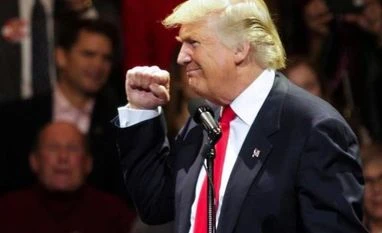Four billionaires, three generals, a handful of women and nothing but conservatives: President-elect Donald Trump is building a super-rich, unorthodox and largely white inner circle to run the United States from January 20.
They include a retired general whose salty language and warrior's determination earned him the nickname "Mad Dog"; a professional-wrestling magnate whose husband was once body-slammed by Trump himself; and the wife of the most powerful member of the US Senate.
Trump has yet to announce his picks for some key posts -- most notably secretary of state -- but several of his choices strongly suggest he is prepared to upset the political order that has dominated Washington for the last eight years.
Many incoming cabinet members have railed against the worker protections and environmental and corporate regulations that President Barack Obama has enacted.
Of the 13 people so far chosen for his cabinet or for cabinet-rank positions, most are white males, like his base supporters. Three are women, two are Asian-American, one is black, and none are Hispanic.
Trump has offered cabinet posts to several billionaires and multi-millionaires, sending a strong signal that he is happy with Wall Street exerting a renewed influence over the US economy.
More From This Section
They include Wilbur Ross, a private equity financier who made a fortune buying bankrupt companies and flipping them for huge profits, for secretary of commerce.
Future education secretary Betsy DeVos is a megadonor who has long promoted taxpayer-funded alternatives to public schools, while Linda McMahon, tapped to head the Small Business Administration, helped grow her husband's WWE wrestling promotion operation into a global phenomenon.
A fourth billionaire in Trump's inner circle, Chicago Cubs co-owner Todd Ricketts, will serve as deputy secretary of commerce.
Multi-millionaire Steven Mnuchin, a former Goldman Sachs partner who has funded Hollywood blockbusters, is the soon-to-be Treasury secretary, while the wealthy fast food executive Andrew Puzder has been picked as secretary of labor.
Trump defended his decision to put "some of the most successful people in the world" into his cabinet.
"One newspaper criticized me: why can't they have people of modest means?" Trump told supporters in Iowa on Friday.
"Because I want people that made a fortune! Because now they're negotiating with you, okay?"
The military men he is bringing into the cabinet indeed have vast experience, which could help a political neophyte like Trump find his footing on the international stage.
But with three retired generals already chosen for his cabinet or inner circle, and a fourth -- David Petraeus -- in the running for secretary of state, Trump is being criticised for militarising an executive branch that has prided itself on civilian leadership.
This week Trump reportedly decided on retired four-star Marine general John Kelly to head the Department of Homeland Security, which oversees several critical areas including immigration and border control -- signature issues for Trump.
Earlier he named outspoken retired Marine general James Mattis as defence secretary, a move that would require Congress to pass a waiver to a law that requires officers to be out of the military for seven years before taking up cabinet posts. Mattis, who commanded US forces in Afghanistan, retired in 2013.
Trump's national security advisor will be retired general Michael Flynn, a former military intelligence chief who sees militant Islam as the biggest threat to global stability.
Trump sees top military veterans as "straight talking" advisors well-placed to streamline government operations, improve efficiency and multitask on problems, Timothy Hagle, who teaches political science at Iowa University, told AFP.
)